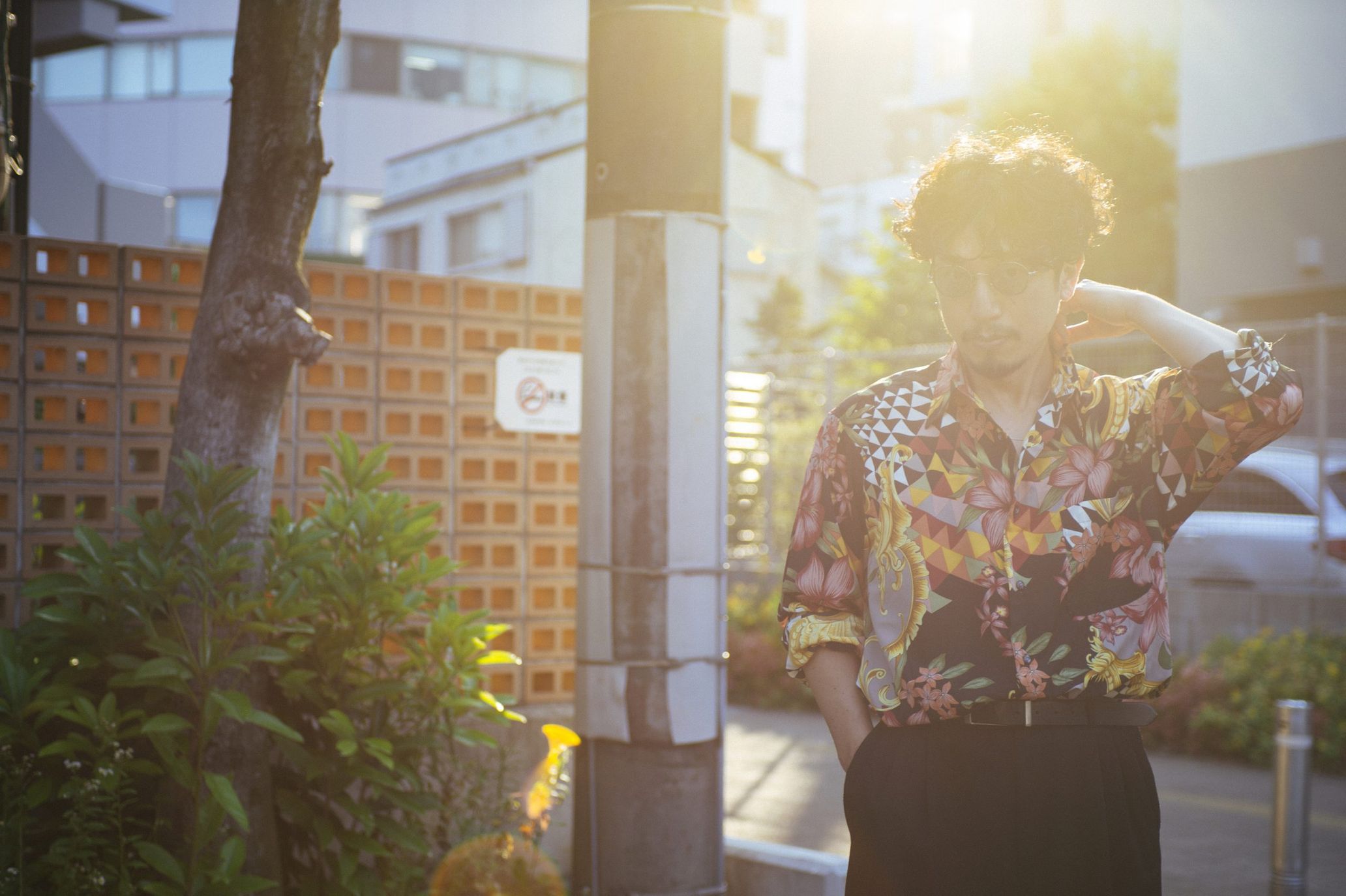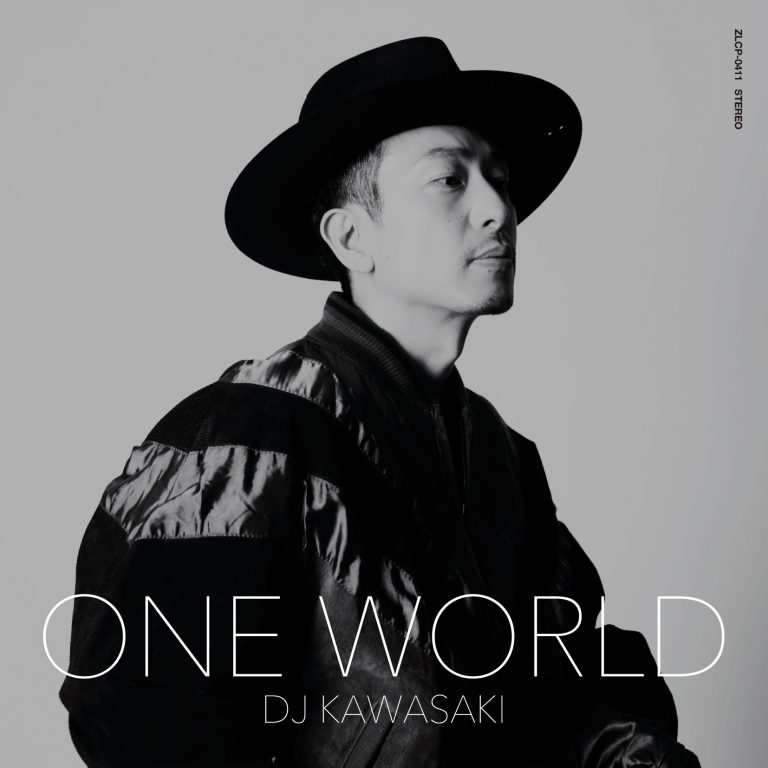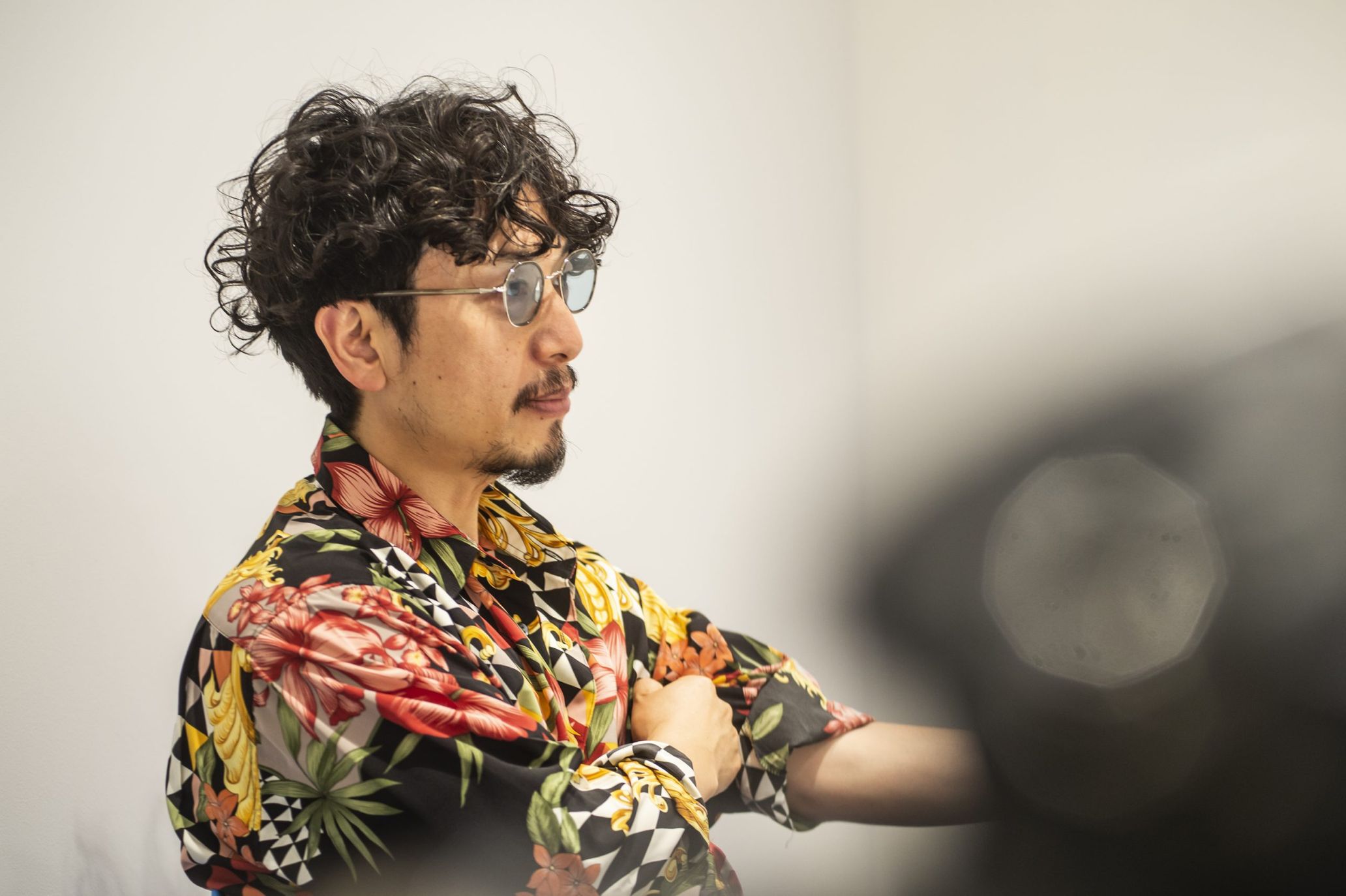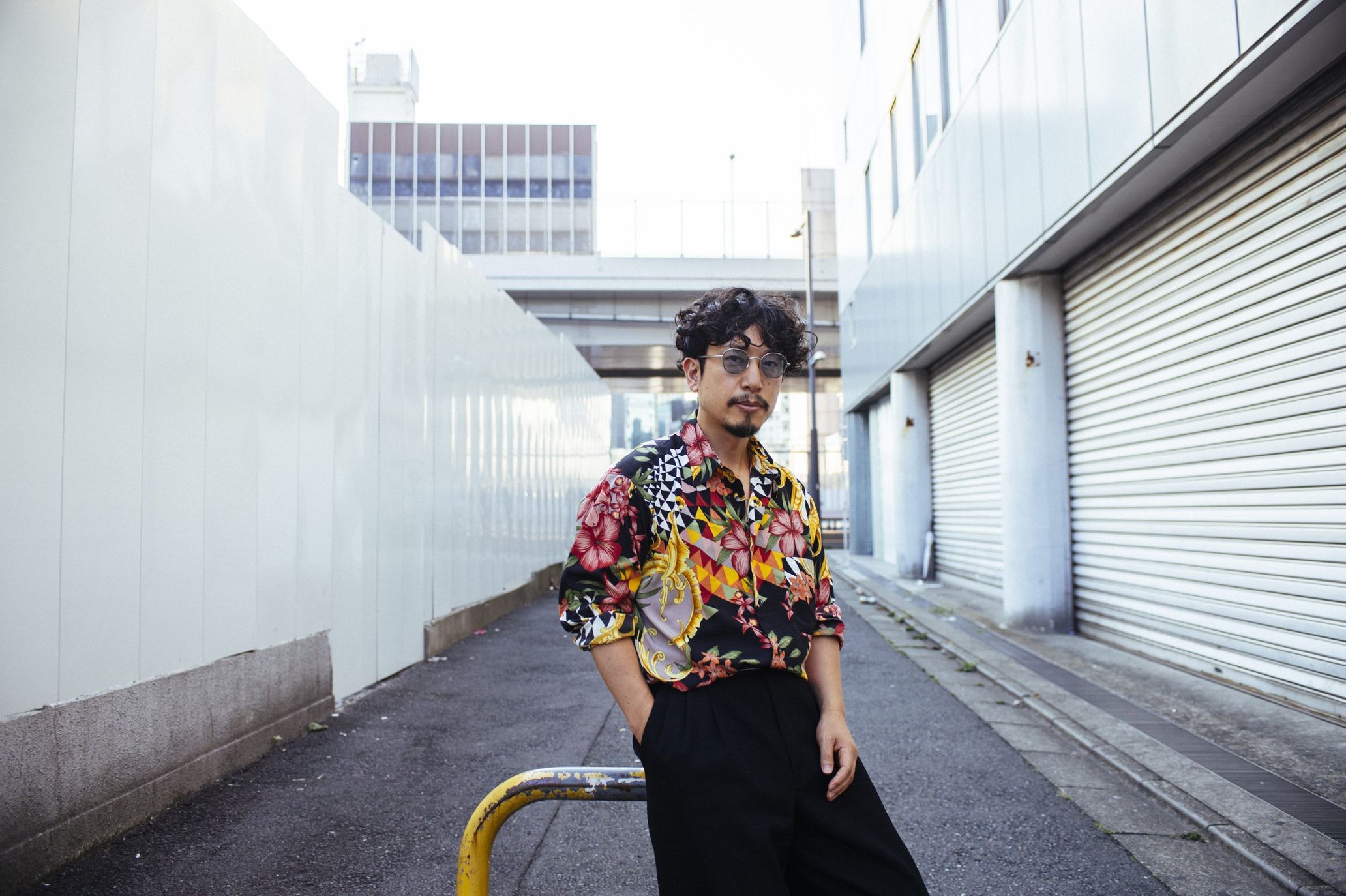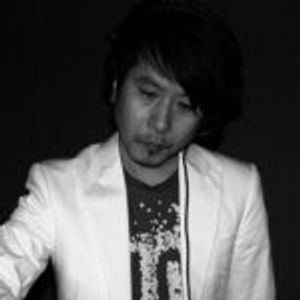On June 30th, DJ KAWASAKI released his first original album, One World, in 11 years. The album only has live sounds, featuring artists like Sauce81, who releases music from Eglo Records run by Floating Points, Taliwa, known for being featured on songs by Ziggy Funk and Neil Pierce, Emi Tawata, who DJ KAWASAKI has collaborated with a long while ago, and Ayana, who works at The Room and has just made her debut as a jazz vocalist in March. One World alsoincludes the album versions of three remix singles by Danny Krivit, DJ KON, and Dr.Packer, initially released last year.
The musicians involved in the making of the album are as follows: Kenichi Ikeda of ROOT SOUL, Venue Vincent, Hiderow Nishioka of CENTRAL, Takeshi Kurihara, active in SOIL & “PIMP” SESSIONS and Kyoto Jazz Sextet, and those with close ties with The Room. One World shows a new musical frontier with instrumental tracks inspired by Afro, jazz, and funk. Why did DJ KAWASAKI record live instruments instead of using drum machines, which he used to do? We dig into the background behind the album.
Showing a new style of music; making a record for live instrumentation enthusiasts who like disco, funk, soul, and jazz
——You released One World 11 years after you put out Paradise in 2010. Within that period, you have released singles and continued working as a DJ, remixer, and producer. Nonetheless, you released this album after quite a long hiatus.
DJ KAWASAKI (KAWASAKI): It was like 11 years had passed before I knew it (laughs). In hindsight, 2005, when I made my debut, was a particular period when the house scene was thriving in Japan. I debuted just then, but in 2010, that sort of trend died down for a while. I began to take another look at myself in a lot of ways.
It just didn’t feel right when people saw me as a house music producer that only made and played house music. I initially used to be the vice store manager of The Room in Shibuya, where Shuya Okino-san (Kyoto Jazz Massive/Kyoto Jazz Sextet) works as the creative director. As I worked and DJed there, I developed an interest in different kinds of music. I became influenced by disco music played by jazz musicians like “I Want You For Myself” by George Duke and crossover styles that were based on but went beyond house music such as Little Louie Vega and Kenny “Dope” Gonzalez’s Nuyorican Soul. I add whatever I like to my record collection, like jazz, disco, funk, reggae, and Japanese music—not just house. It was hard to play songs that weren’t electronic at house events I used to be invited to. I couldn’t play analog records from my collection. I did play records I strongly wanted to, but I couldn’t get the crowd going with analog sounds. Okino-san once banned me from playing analog music (laughs).
Of course, I love house, but the style I was aiming for wasn’t only that. For instance, Larry Levan skillfully used to play whatever touched his heart regardless of the genre in his disco sets. Theo Parrish would bring the BPM down all of a sudden, even if it’s at peak hour, and play reggae or rock; his unpredictability is artistic and cool. My desire to become as unrestricted as him and others has grown more powerful. I think about this stuff all the time.
——Every song on One World was recorded with acoustic instruments of a band. Until this point, you had produced electronic music with drum machines. What prompted you to arrive at this current style of yours?
KAWASAKI: When I make electronic music with a house music structure, the audience always expects me to play four-on-the-floor songs whenever I DJ. I thought, “If I want to express a bigger world by mixing analog sounds, I need to make an album with live instruments.” I had been contemplating this direction for a long time.
I’m a DJ, so I’m someone who comes to life at the venue. I wanted to make something that I could naturally incorporate into my sets. It took me a very long time to explore that. But during these past 11 years, I quickly became close friends with RYUHEI THE MAN, who would DJ at The Room, and Daisuke Kuroda through records. They’ve had a massive musical influence on me. My wish to convey my updated sound, which would resonate with people like them—who play funk, soul, and rare grooves—and even more people became more dominating. And that’s why I made this album.
——Society and the music industry have been changing over the past decade. How people consume music, a la streaming services and YouTube, and its trends have been shifting. Is there a reason why you put out One World amid such change?
KAWASAKI: Despite the progress of digitalization, records have continued to be on the rise over the past few years. I only DJ with records. And I know of many passionate record fans. Over the past couple of years, I got into 7-inch records because I had many opportunities to DJ with RYUHEI THE MAN. I was also able to found my label specializing in 7-inch records, KAWASAKI RECORDS, with the help of Okino-san. We pressed analog vinyl records of One World, on top of other formats like digital releases, CDs, and streaming services, to support the hype surrounding records. If DJs I love like DJ MURO-san, DJ JIN-san, and DJ KOCO-san listen to the album and even play it, I’ll be overjoyed!
——This past year has changed drastically because of covid, but you created One World under thesecircumstances. Is there a message on the album for people who live in this new reality?
KAWASAKI: I made the title track, “One World,” right amid the pandemic. DJ events and venues got canceled or shut down because of the stay-at-home order and such. I was in a dire situation. Perhaps some people lost the willpower to continue making music, or some people didn’t have much influence. Every artist’s case is different, but as one artist, I felt a sense of duty to release an album during this historical year of 2021. What’s important is to believe in the power of music and to try your best with a positive outlook, even though it’s tough. When I thought about how everyone—not just ourselves—across the globe are trying their best to live under difficult circumstances all at the same time, it reassured me that the world is one. The album has this positive message: things are hard for our world—one world—but let’s all keep our heads up and live through this. Okino-san’s wife, Joanne Laporte, wrote the lyrics.
——People couldn’t have live shows for a long while, but how did you record the musicians?
KAWASAKI: Basically, each instrument was recorded separately, and I mostly went back and forth with my musician friends online. I would create a demo with a keyboard, mapping out the basic chords and melody. Then, my musician friend and I would brush up and refine the arrangements. Almost everyone had a recording space at home, and some even had a proper studio at home. The drums were recorded at The Room. The violin and cello were recorded at Studio Cafe2st, run by Tetsushi Mase, with who I’ve worked since my first album. The vocals were mostly done online, but Ayana recorded hers at Cafe2st.
Encapsulating the present through a music video’s balance of 1970s music and 80s fashion
——The musicians who partook in making the album are: Kenichi Ikeda of ROOT SOUL, VenueVincent, Hiderow Nishioka of CENTRAL, Takeshi Kurihara, who’s active in SOIL & “PIMP” SESSIONS and Kyoto Jazz Sextet, and those with close ties with The Room. What was on your mind regarding this formation?
KAWASAKI: In the past, I’d switch musicians according to how I envisioned each song. But I wanted to bring out cohesiveness as a band with this album, so aside from the bass and guitar, we recorded the instruments with the same members. I believe it has a solid band sound. It was recorded online, but I had the idea of touring as a band, after the release of the album, in mind. And so, I wanted to make something with a feeling of unity. I reckon the members brought the sound as close to the ideal that I aimed for, precisely because they’re good friends.
——The horn and strings add depth and openness to the sound. Were there any specific bands you had in mind? I pictured bands at the height of the disco era like MFSB, the Salsoul Orchestra, and John Davis and The Monster Orchestra.
KAWASAKI: In my head, I pictured something from a slightly older time, like underground groups that only put out music on 7-inches or lo-fi sounds that were in-between modern soul and disco, such as Universal Togetherness Band. MFSB and the Salsoul Orchestra are more glamorous or rather polished. My intention is slightly different.
——The album as a whole mainly has disco and boogie-esque numbers. Like you mentioned just now, the album isn’t based on the music of the 80s, where electronic techniques and synths increased. It’s more so based on 70s music, yes?
KAWASAKI: I love that 70s sound, and that’s partially reflected on the album. However, the styling and visuals of the cover art are inspired by the late 70s to early 80s. It would’ve been too straightforward if the sound and cover were both blatantly 70s inspired. I tried to be conscious of the mood and environment of the present day: for instance, Anderson .Paak and Pharell incorporate an essence of 70s music, but their fashion and music videos borrow from the 80s aesthetic. That’s how they make it modern. I also have that sort of goal and sensibility.
DJ KAWASAKI’s past tastes and his increased consciousness towards live instrumentation
——The album includes singles that have previously been released from KAWASAKI RECORDS, such as “When It Feels Right” featuring Michiru Monday, “Don’t Put My Heart Down” featuring Maylee Todd, and “Alive” featuring Shea Soul. Furthermore, other women singers from in and out of the country like Taliwa, Emi Tawata, and Ayana are featured. What image did you have upon inviting guest artists?
KAWASAKI: I value collaborations between those I’ve met and have built a certain degree of a relationship with. A person’s singing skills and character are not always on the same level, and so I want to work with good people, seeing as music as a product lasts forever. Taliwa sang on the album through a mutual friend of ours. Aside from her, I’m friends or acquaintances with all the singers. Taliwa and I spoke back and forth on Instagram and deepened our communication. So, we were able to record the vocals in good spirits.
——I heard Ayana also works at The Room, but what kind of singer is she? On “One World,” she performs this jazz-like scat.
KAWASAKI: She’s a jazz singer who released a solo album in March. She sings standard jazz on that. I assume this is her first time recording a club or dance tune. “One World” was her first song outside of jazz. KARIN sang on my debut single, “Blazin’,” and we recorded the song because she worked at The Room as a staff member. Having Ayana singing on “One World,” reminded me of that; I feel like it was something like destiny.
——The only song with a man singing on it is “Sun, Run & Synchronize,” which features Sauce81. His main occupation is a producer rather than a singer, but what did you picture for this?
KAWASAKI: He has a song called “Dance Tonight,” and I love that song. I used to play it a lot during my sets. I approached him because I wanted to make a disco song that was as good as that one.
——“Sun, Run & Synchronize” has a Japanese feel to it, similar to the mellowness of city pop or AOR. This sort of Japanese music and city pop are trending right now, but did you think about these genres too?
KAWASAKI: When I was making the track, I didn’t think about it, but when Takeshi Kurihara-kun played his sax solo, I got into his city-like vibe. It wasn’t my intention, but as a result, this song turned out to have a good essence with a city soul-ish vibe. I don’t think about Japanese music or city pop in my work, but when I produced music for a singer called NAYUTAH, I made the arrangements while being very conscious of that sort of music.
——On the other hand, “Urban Origin” is an instrumental number that could be described as “Afro Funk Disco.” It reminds me of War’s “Galaxy.” What did you envision upon making this song?
KAWASAKI: You’re exactly right. Initially, the title was “Afro Funk Disco” (laughs). Whenever I DJ, I like earthy sounds like Afro, Caribbean, and percussive music, and I buy those records a lot. I wanted to make a similar instrumental track. I arranged and incorporated a guitar riff as an homage to Fela Kuti. I pictured War and was inspired by that type of disco.
——“Light Your Light,” sung by Emi Tawata, sounds like a mix between disco songs by The Brand New Heavies, Patrick Adams, and Greg Carmichael. “One World” and “When It Feels” also have a vibe that’s similar to Adams and Carmichael’s productions, as well as The Monster Orchestra. Is there an homage-like element to this song?
KAWASAKI: I wasn’t thinking about that in particular, but I love Patrick Adams. I like the Moog arrangements in his songs. I like how he makes his grooves; the way his chord progressions don’t change that much and go on forever. Perhaps a part of me unconsciously references the nature of his style. I think the influence of artists I like is reflected [in my music] without my knowledge.
——Could you expand on the message of One World to your fans and listeners? Also, what’s in store for you next?
KAWASAKI: The release date, June 30th, was also my birthday. I set it up like that on purpose. Like I mentioned before, this new album is made entirely with live instruments. I feel like you can listen to an evolved sound where everything was recorded live, including the drums, paired with universal and emotional “DJ KAWASAKI-esque” melodies. I asked Daisuke Kuroda-san, an older DJ I respect, to write the liner notes. His commentary on the album songs, which only he could’ve analyzed from his unique perspective, is very intriguing. I hope you like it. I just had a press release event at Unit in Daikanyama on May 29th, and it reaffirmed the fun of performing live as a band. The state of the emergency announcement has been lifted, so I hope things could settle down a little bit in society. I’d be happy if I could slowly have more live shows or DJ tours.
DJ KAWASAKI
DJ KAWASAKI is a DJ, remixer, producer, and songwriter. In 2005, he made his international debut with a 12-inch single released on King Street. He has had eight consecutive songs that earned the number one spot on iTunes’ Dance Chart. In 2018, he founded KAWASAKI RECORDS, which mainly focuses on releasing 7-inch records. In November 2020, he released “When It Feels Right feat. Monday Michiru (Danny Krivit Edit)/ DJ KAWASAKI,” his sixth single, edited by the New York dance music scene legend, Danny Krivit. DJ KAWASAKI released One World, his first album in 11 years, on June 30th.
Photography Kunihisa Kobayashi
Edit Jun Ashizawa(TOKION)
Translation Lena Grace Suda

